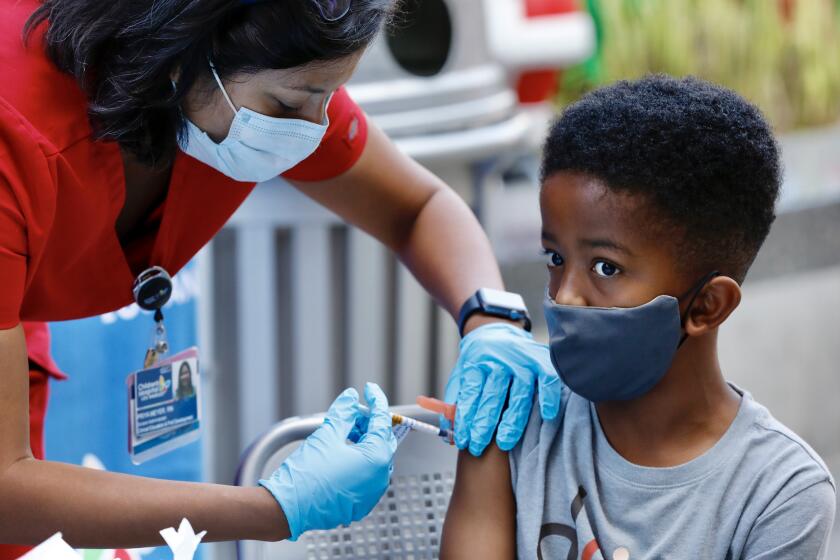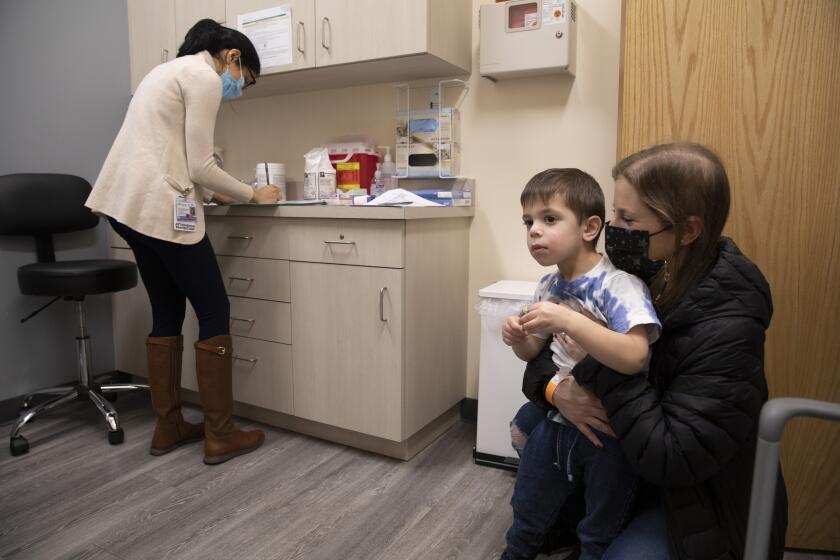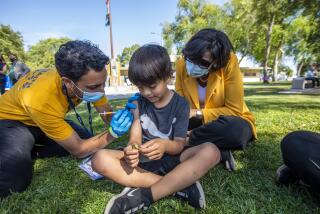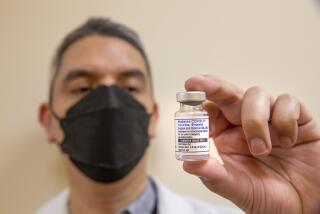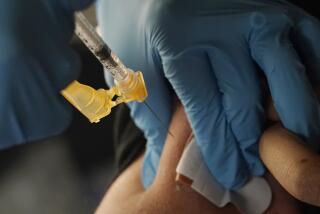FDA clears COVID booster shot for healthy kids ages 5 to 11

The Centers for Disease Control and Prevention must next decide whether to formally recommend the COVID vaccine booster for children ages 5 to 11.
- Share via
U.S. regulators on Tuesday authorized a COVID-19 booster shot for healthy 5- to 11-year-olds, hoping an extra vaccine dose will enhance their protection as infections once again creep upward.
Everyone 12 and older already was supposed to get one booster dose for the best protection against the newest coronavirus variants — and some people, including those 50 and older, can choose a second booster.
The Food and Drug Administration’s authorization now opens a third shot to elementary-age kids, too — at least five months after their last dose.
There is one more hurdle: The Centers for Disease Control and Prevention must decide whether to formally recommend the booster for this age group. The CDC’s scientific advisors are scheduled to meet on Thursday.
Pfizer’s shot is the only COVID-19 vaccine available for children of any age in the U.S. Those ages 5 to 11 receive one-third of the dose given to everyone 12 and older.
Pfizer asked U.S. regulators for emergency-use authorization of a booster shot of its COVID-19 vaccine in children ages 5 to 11.
Whether elementary-age children need a booster has been overshadowed by parents’ anxiety to vaccinate even younger kids, those under 5 — the only group not yet eligible in the U.S. Both Pfizer and rival Moderna have been studying their shots in the youngest children, and the FDA is expected to evaluate data from one or both companies sometime next month.
For the 5- to 11-year-olds, it’s not clear how much demand there will be for boosters. Only about 30% of that age group have had the initial two Pfizer doses since vaccinations opened to them in November.
But in a small study, Pfizer found a booster revved up those children’s levels of virus-fighting antibodies — including those able to fight Omicron — the same kind of jump adults get from an extra shot.
The Food and Drug Administration has set tentative dates in June to publicly review COVID-19 vaccines for the youngest American children.
While the coronavirus is more dangerous to adults than to children, youngsters can get severely ill — and more than 350 children ages 5 to 11 have died, according to CDC’s count.
Adding to public confusion, the CDC estimates 3 out of every 4 U.S. children of all ages have been infected with the coronavirus since the pandemic’s start — many of them during last winter’s Omicron wave. Still, health authorities urge vaccination even for people who’ve previously had COVID-19, to strengthen their protection.
Vaccination may not always prevent milder infections, especially as Omicron and its siblings are better than some prior variants at slipping past those defenses. But health authorities agree the vaccinations continue to offer strong protection against the worst outcomes of COVID-19, including hospitalization and death.
